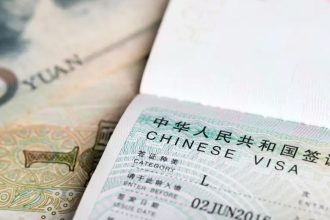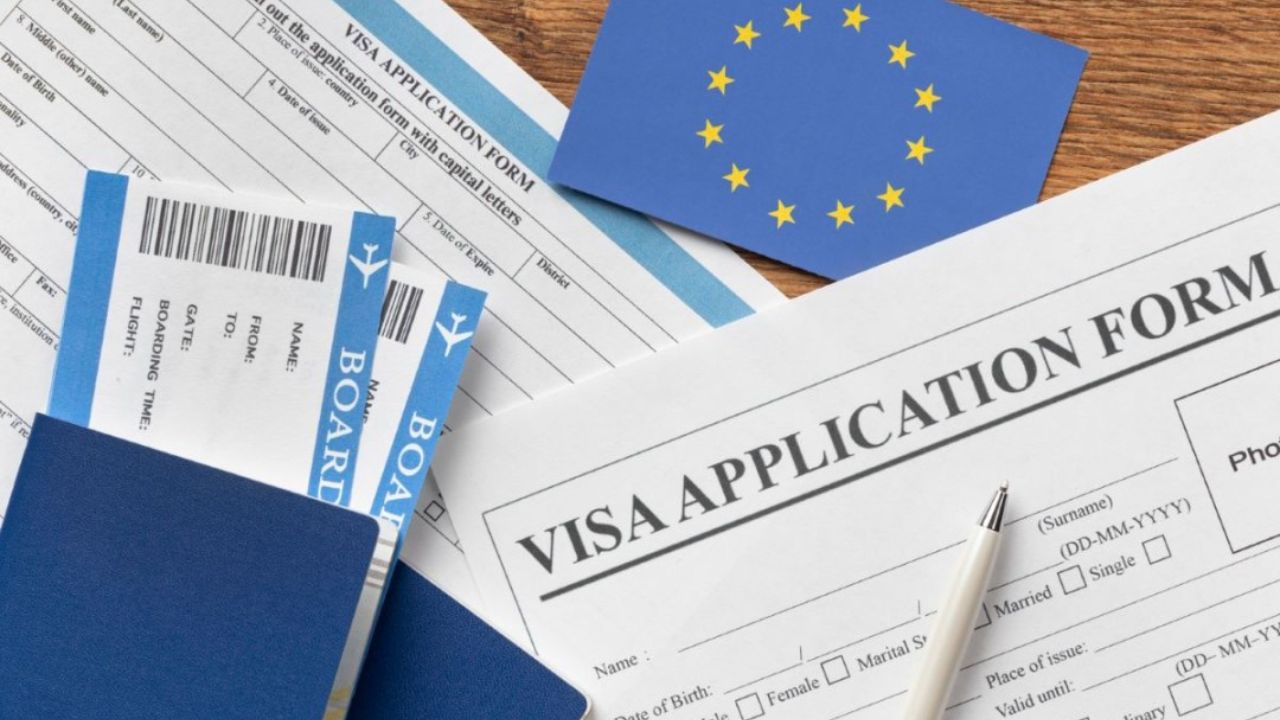Dubai New Visa Rules For Travellers From India. Dubai, a world-renowned city known for its modern architecture, luxury shopping, and vibrant culture, is a favorite travel destination for Indian citizens. With its expanding tourism sector and increasing number of visitors from India, Dubai continues to strengthen its relationship with the Indian subcontinent.
- Dubai’s New Visa Rules for Indian Nationals
- Types of Dubai Visas for Indian Citizens
- Eligibility Criteria for a Dubai Visa from India
- How to Apply for a Dubai Visa on Arrival
- Step 1: Arrival at Dubai Airport
- Step 2: Pay the Applicable Fees
- Step 3: Receive Your Visa
- Step 4: Immigration Clearance
- Important Points to Remember
- Visa Exemptions for Certain Travelers
- Impact of New Visa Rules on Indian Tourism to Dubai
- Conclusion
In line with this, Dubai has recently introduced new visa rules for Indian travellers, making it easier and more convenient for them to visit the UAE. These changes are expected to boost tourism, business, and cultural exchanges between India and Dubai.
Dubai’s New Visa Rules for Indian Nationals
The UAE, including Dubai, has long been a favorite destination for Indian tourists, business people, and professionals. To further streamline the travel experience and encourage more Indian nationals to visit, the UAE government has introduced new visa regulations aimed at enhancing the ease of travel for Indian passport holders. These new rules come at a time when tourism between the two countries is on the rise, and they reflect the UAE’s growing partnership with India.
Related Posts
The new visa rules offer flexibility and ease of access to Dubai for Indian nationals. Indian passport holders now have multiple options to apply for a Dubai visa, catering to different travel needs.
Types of Dubai Visas for Indian Citizens
Under the new visa policy, Indian nationals can choose from two main types of visas when planning a trip to Dubai.
- Dubai Visa on Arrival (14 days, extendable): Indian passport holders can now avail a visa on arrival when they land in Dubai. This visa is valid for 14 days and can be extended for an additional 14 days, providing more flexibility for tourists who wish to extend their stay. However, to be eligible for this visa, your passport must be valid for at least six months from your date of arrival in Dubai.
- Non-Extendable 60-Day Dubai Visa: For travellers planning a longer stay, Dubai also offers a non-extendable visa with a validity of 60 days. This visa does not offer the flexibility to extend the stay, so it is ideal for those with specific travel plans.
- 5-Year Multiple Entry Visa: One of the most significant changes to the visa rules is the introduction of a 5-year multiple-entry visa for Indian passport holders. This long-term visa allows frequent travellers to Dubai to visit multiple times over five years without needing to apply for a new visa each time. This change is expected to benefit frequent business travellers, tourists, and those with family members living in Dubai.
These visa changes are part of the UAE’s initiative to strengthen its ties with India and foster deeper cultural, economic, and commercial exchanges. The introduction of these flexible visa options is expected to encourage more Indians to travel to Dubai, whether for business, tourism, or family visits.
Eligibility Criteria for a Dubai Visa from India
Before applying for any type of visa to Dubai, it’s important to ensure that you meet the eligibility criteria. Here are the key requirements for Indian travellers:
- Valid Passport: You must hold a valid Indian passport, with at least six months validity from your date of arrival in Dubai.
- Visa Fees: Visa application fees will vary depending on the type of visa you are applying for, and the charges will be in accordance with UAE regulations. The visa-on-arrival fee will also depend on the duration of your stay.
- Supporting Documents: Depending on the visa type, you may need to submit certain documents such as:
- Passport-sized photograph
- Proof of accommodation in Dubai
- Flight tickets showing your entry and exit from Dubai
- Travel insurance (recommended)
- Valid Visa from Other Countries: If you hold a valid visa from the US, UK, Schengen area, or other approved nations, you may be eligible for a visa-on-arrival or visa-free entry to Dubai.
How to Apply for a Dubai Visa on Arrival
For those who wish to take advantage of the Dubai visa-on-arrival option, here is a step-by-step guide to the process:
Step 1: Arrival at Dubai Airport
Once you arrive at Dubai International Airport, proceed to the Marhaba service center at the immigration counter. The authorities will verify your passport and other travel documents. Make sure to have your documents ready for inspection to avoid any delays.
Step 2: Pay the Applicable Fees
The visa-on-arrival fee can be paid via USD or AED cards. Ensure that you have the necessary funds in your payment card for a smooth transaction.
Step 3: Receive Your Visa
After completing the payment and document verification, you will receive your Dubai visa on arrival within a time frame of 30 minutes to 3 hours, depending on the number of applications being processed at that time.
Step 4: Immigration Clearance
Once you have your visa, proceed to the immigration clearance where you will be stamped and allowed entry into Dubai. Make sure to keep your travel documents, including the visa, accessible throughout this process.
Important Points to Remember
While the new visa rules make it easier for Indian nationals to visit Dubai, there are several other regulations that you need to be aware of:
- Travel Insurance: It’s always advisable to have travel insurance when visiting Dubai, as it ensures that you are covered for any unforeseen medical or travel-related emergencies.
- Unaccompanied Minor: If you are a minor (under 18 years of age) travelling alone on a tourist visa, you must book the Unaccompanied Minor Service with the airline. This service is mandatory for minors travelling without an accompanying guardian.
- Family Visa: If you are applying for a family visa, it is essential that at least one family member accompanies you. Family visas are not issued to individuals who travel alone.
- Document Submission: Ensure that all documents required for your visa application are submitted according to the guidelines. This includes providing a passport-sized photograph, hotel booking confirmation, and return flight ticket.
- Visa Validity: For both visa-on-arrival and standard visas, make sure your passport remains valid for at least 6 months after your planned arrival in Dubai.
Visa Exemptions for Certain Travelers
Apart from the regular visa categories, there are some visa exemptions for Indian travellers under specific circumstances. If you hold a valid visa from certain countries, including the US, UK, and Schengen nations, you may be eligible for a visa-on-arrival or even visa-free entry to Dubai.
Additionally, UAE has agreements with some countries that allow for visa-free travel to Dubai for a specific duration. Always check the latest travel advisories and visa requirements before booking your trip.
Impact of New Visa Rules on Indian Tourism to Dubai
Dubai has long been a favorite destination for Indian tourists due to its proximity, world-class infrastructure, and luxurious offerings. In fact, India consistently ranks as one of the top source countries for tourists to Dubai. In 2023 alone, approximately 2.46 million Indian nationals visited Dubai, and this number is expected to rise significantly with the introduction of the new visa rules.
By making the visa application process simpler and more accessible, the UAE hopes to attract even more tourists from India. The introduction of the 5-year multiple-entry visa will particularly benefit frequent travellers, business professionals, and expatriates living in the UAE.
Conclusion
The newly introduced visa rules for Indian travellers to Dubai represent a significant step in the UAE ongoing efforts to strengthen ties with India. With the new visa-on-arrival options, extended multiple-entry visas, and flexible visa durations, Indian nationals can now plan their trips to Dubai with greater ease and confidence. These changes are expected to boost tourism and cultural exchange between the two nations while also supporting the UAE’s growing tourism industry.









